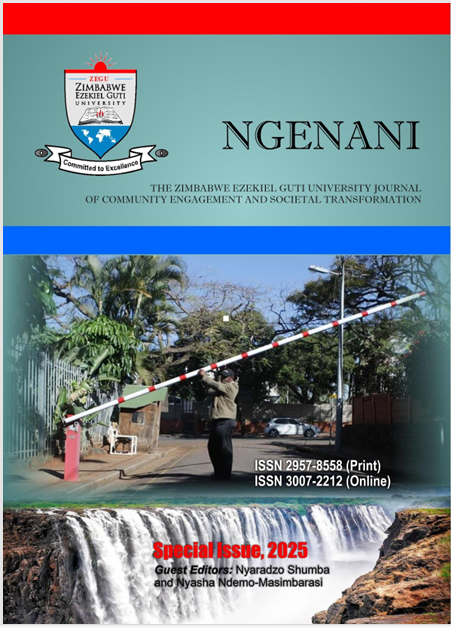Addressing Barriers and Creating Opportunities for Women with Disabilities in Gendered Economies: A Case of Masvingo Urban Zimbabwe
DOI:
https://doi.org/10.71458/19mtas43Keywords:
discrimination, disability, empowerment, gender equality, inclusionAbstract
Women experience barriers in their day-to-day lives and the presence of a disability compounds the situation. Women with disabilities often face stigma and discrimination, hindering their active participation and recognition in the economic sector. This article aims to explore the challenges faced by women with disabilities in accessing economic opportunities and improving their livelihoods. Obstacles include cultural norms and values about women, limited access to education and lack of training. The qualitative study collected data using in-depth face-to-face interviews with 10 women with disabilities and three administrators from disability organisations in Masvingo who were purposively selected. The study is guided by The Feminist Disability Theory and the Capability Theory. The study found that despite the existence of legislation supporting rights of people with disabilities, gender inequality affects access to education, employment and empowerment for women with disabilities in socio-economic activities remains low. Their livelihoods are affected by the lack of opportunities to engage in meaningful economic activities, though some non-governmental organisations (NGOs) are capacitating women with disabilities. The study recommends addressing education disparities, improving employment and economic opportunities for girls and women with disabilities through vocational training and access to financial resources for establishing own entrepreneurial businesses and strengthening legal frameworks to protect their rights.




